The Rural Primitive
in American
Popular Culture
Studies in UrbanRural Dynamics
Series Editors : Gregory M. Fulkerson and Alexander R. Thomas, SUNY Oneonta
This series focuses attention on understanding theoretically and historically the development and maintenance of UrbanRural Systems through a spatial, demographic, and ecological perspective. It seeks a blending or reintegration of the urban, rural, and environmental research literatures under a comprehensive theoretical paradigm. As such, we further specify UrbanRural Dynamics as analysis of human population distribution on social variables, including politics, economics, and culture.
Recent Titles in Series
The Rural Primitive in American Popular Culture: All Too Familiar , by Karen E. Hayden
Urbanormativity: Reality, Representation, and Everyday Life , by Alexander R. Thomas and Gregory M. Fulkerson
Rural Voices: Language, Identity and Social Change across Place , edited by Elizabeth Seale and Christine Mallinson
Reinventing Rural: New Realities in an Urbanizing World , edited by Alexander R. Thomas and Gregory M. Fulkerson
Reimagining Rural: Urbanormative Portrayals of Rural Life , edited by Gregory M. Fulkerson and Alexander R. Thomas
The Rural Primitive
in American
Popular Culture
All Too Familiar
Karen E. Hayden
LEXINGTON BOOKS
Lanham Boulder New York London
Published by Lexington Books
An imprint of The Rowman & Littlefield Publishing Group, Inc.
4501 Forbes Boulevard, Suite 200, Lanham, Maryland 20706
www.rowman.com
6 Tinworth Street, London SE11 5AL, United Kingdom
Copyright 2021 The Rowman & Littlefield Publishing Group, Inc.
All rights reserved . No part of this book may be reproduced in any form or by any electronic or mechanical means, including information storage and retrieval systems, without written permission from the publisher, except by a reviewer who may quote passages in a review.
British Library Cataloguing in Publication Information Available
Library of Congress Control Number: 2020947239
 The paper used in this publication meets the minimum requirements of American National Standard for Information SciencesPermanence of Paper for Printed Library Materials, ANSI/NISO Z39.48-1992.
The paper used in this publication meets the minimum requirements of American National Standard for Information SciencesPermanence of Paper for Printed Library Materials, ANSI/NISO Z39.48-1992.
For all my rural relatives, past and present.
Contents
Growing up in a rural region of New Hampshire, in a town where both my mother and father grew up, and where my fathers father also grew up, I wondered why people from certain towns were viewed as inbred and lawless, but the people in my town were not. Living on a road where my last name appeared on three mailboxes within an eighth of a mile of each other, and where my oldest brother added his own house and mailbox, I questioned why and how certain common family names in some close-knit communities came to signify both inbrededness and the town itself; but not so in my town. My town and its inhabitants did not become a defining space, a place marking those born into it. My town does not shadow the perceptions of those who pass through it and live near it. This book grew out of my curiosity about why some rural people and places are viewed as too tight-knit, too close, and all too familiar. Because of this curiosity, I have honed in on themes of rural others in popular culture and found the notion of the rural primitive to be a very hearty and enduring stereotypeso enduring that I view it as a mythology. The mythology involves both positive (rural as bucolic) and negative (rural as horrific) ideas about rural life, but I am drawn to the more grotesque views of rurality because they exist at an almost subconscious level in American popular thinking and they dehumanize rural people. I hope this book sheds light on this myth-making and offers a way to critique assumptions about people who are viewed as living on the rural margins of an increasingly urban society.
I would like to thank all of the people who helped me work through this book. I am lucky to be a part of a small community of rural thinkersscholars who grapple with rurality and what it means in a world that is increasingly biased toward urban and away from rural. My thanks to Alex Thomas and Greg Fulkerson, both at SUNY Oneonta. Their dedication to rural scholarship is nothing short of remarkable, and I appreciate being a part of it. Thanks to Leanne Avery and Brian Lowe, also at SUNY Oneonta. Thanks also to Amy Viera at Norwich University and Karl Jicha at North Carolina State University. A special thanks to Stephanie Bennett at the College of Saint Rose, who reviewed the bookI am very grateful for your kind words. I would also like to give a shout-out to rural criminology scholars whose ideas and critical perspectives are a welcome turn within criminology. Joseph Donnermeyer and Walter DeKeseredys enthusiasm for rural criminology is contagious and helped me to think through many of the issues discussed in this book. And I will always be thankful to Mike Brown of Northeastern University for being such a positive and critical influence in my academic life.
Thank you to Courtney Morales at Lexington Books: you are a perfect mixture of support and gentle nudges when needed. I hope we can work together again. And thank you to Lexington Books for allowing me to include versions of material that was published previously in Fulkerson and Thomass Studies in Urbanormativity: Rural Community n Urban Society (2014) and Fulkerson and Thomass Reimagining Rural: Urbanormative Portrayals of Rural Life (2016).
I lucked out in the family department, and I want to thank them. Thank you to Mark Kelley, always. Thank you to my daughter, Evelyn Hayden Kelley, for being an astute reader, sounding board, and movie buff. It is a pleasure to watch you become a writer. Thank you, Kathy Hayden, for your enduring support. I am so glad we can lean on each other. Thank you to my brothers Mike and Pete and of course my parents, James E. Hayden and Carole Mahoney Hayden.
When did rural, poor whites begin to be associated with inbreeding, primitivism, and violence and viewed as other as less than, or even as scary? In this book, I look at how the mythology of the inbred, primitive rural became linked to evolutionary theories, both biological and social, that emerged in the mid-nineteenth century. The rural primitive fit well onto an imaginary continuum of primitive to civilized, rural to urbanormative, backward- to forward-thinking, and regress versus progress. The seeds of this mythology can be found even earlier in U.S. historyas early as the colonial period when white-indentured servants were brought to colonial America as laborers who made the so-called new world possible (Isenberg, 2016). In each chapter of this book, I use popular cultural depictions of the rural primitive to illustrate the ways in which this trope was used to set poor, rural whites apart from others. Not only were they set apart, they were also set farther down on the imaginary continuum of progress. Outsiders viewed them through a prism of what they lackedno property, no work ethic, no morals. They were defined by what they were not: as ununcouth, uncivilized, unfit.
Certainly, the seeds of this rural primitive notion existed before social theorists such as Herbert Spencer put it to use in social Darwinist conceptions of an evolutionary march toward progress with primitivism at the opposing end of a spectrum reaching toward civilization. Historian Nancy Isenberg traces the idea of poor white trash as far back as America itself. As she illustrates, waste men and waste women were the landless indentured servants who served the earliest colonists (Isenberg, 2016, p. 42). The colonists interest in this class of people grew when they started reproducinghaving waste children who could also be exploited for cheap labor (Isenberg, 2016, p. 42). Keeping them property-less insured that they would be a readily available laboring class to work the land of the colonizers. The social mobility of this group would not serve the needs of those in power. As Isenberg states,

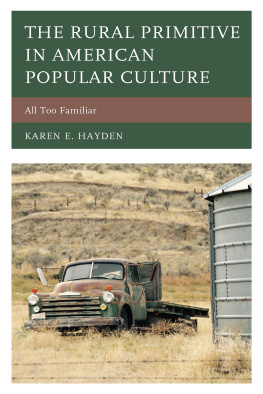

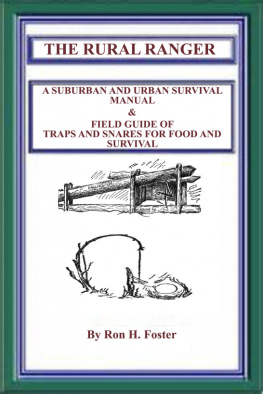
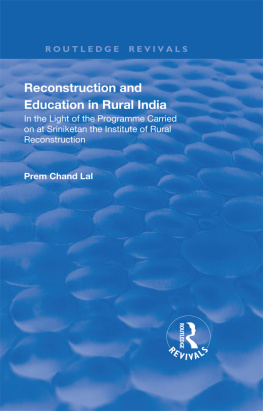


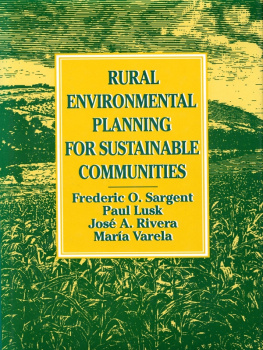
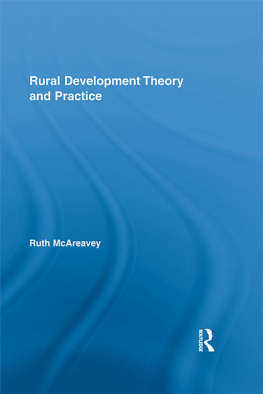

 The paper used in this publication meets the minimum requirements of American National Standard for Information SciencesPermanence of Paper for Printed Library Materials, ANSI/NISO Z39.48-1992.
The paper used in this publication meets the minimum requirements of American National Standard for Information SciencesPermanence of Paper for Printed Library Materials, ANSI/NISO Z39.48-1992.